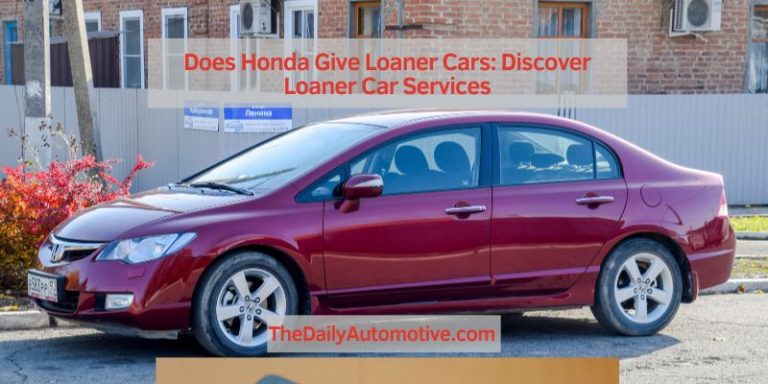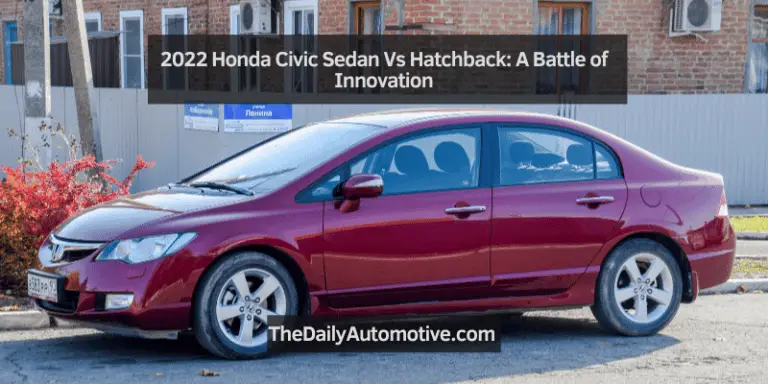Can Honda Accord Take E85? Unleashing the Power Potential
Yes, the Honda Accord is compatible with E85 fuel.
Can Honda Accord Use E85?
Many Honda Accord owners may wonder if their vehicle is compatible with E85, a fuel blend that contains 51% to 83% ethanol. In this article, we will explore whether the Honda Accord can safely use E85 fuel and the implications it might have on the car’s fuel system, engine performance, and economics.
Fuel System Compatibility
The Honda Accord is not designed to run on E85 fuel by default. It is important to note that E85 contains a higher percentage of ethanol compared to regular gasoline. While the ethanol content can vary, it can have a corrosive effect on certain materials commonly used in conventional fuel systems. Most Honda Accord models are equipped with fuel systems and components that are designed to handle regular gasoline, which typically contains a maximum of 10% ethanol (E10).
Using E85 fuel in a Honda Accord that is not specifically designed or modified to accommodate higher ethanol blends can potentially damage fuel injectors, seals, gaskets, and other fuel system components. This can lead to costly repairs and decreased performance.
Engine Compatibility
The Honda Accord’s engine is optimized to run on regular unleaded gasoline with an octane rating of 87 or higher. While E85 generally has a higher octane rating, the engine’s design and fuel management system are not calibrated to take full advantage of the benefits provided by E85. Therefore, using E85 in a Honda Accord can result in decreased engine performance and fuel efficiency.
In addition, the higher ethanol content in E85 fuel can cause improper air-fuel ratios, leading to combustion issues. This can manifest as hard starts, rough idling, misfires, and reduced power output. It is important to consider these factors before deciding to use E85 fuel in a Honda Accord.
Performance Impact
Using E85 fuel in a Honda Accord can have a noticeable impact on its performance. While E85 does have a higher octane rating compared to regular gasoline, the Honda Accord’s engine is not specifically tuned to extract the maximum potential from this higher octane fuel. As a result, the benefits in terms of improved engine performance and power may not be significant.
On the other hand, the lower energy content of E85 compared to gasoline can reduce a Honda Accord’s overall fuel efficiency. This means that drivers might notice a decrease in their car’s mileage when running on E85 fuel. It is essential to weigh the potential performance gains against the reduced fuel economy when considering E85 for a Honda Accord.
Economic Considerations
When it comes to the economic aspect, Honda Accord owners should carefully evaluate the cost-effectiveness of using E85 fuel. While E85 is often priced lower than regular gasoline, its lower energy content means that more fuel is needed to travel the same distance. Therefore, the lower cost per gallon of E85 might be offset by the decrease in fuel efficiency, resulting in similar or even higher fuel expenses in the long run.
Additionally, not all gas stations offer E85 fuel, which means that availability can also be a limiting factor. Before deciding to use E85 in a Honda Accord, it is important to research the availability and pricing of E85 in your area and consider if the potential benefits outweigh any drawbacks.
Unleashing The Power Potential
Unleash the potential of your Honda Accord by exploring its compatibility with E85 fuel for enhanced power and performance. Discover how this alternative fuel option can optimize your driving experience.
Engine Modifications For E85
One of the most exciting aspects of using E85 fuel in a Honda Accord is the potential for unleashing its power. With a few engine modifications, you can unlock the full performance capabilities of your beloved vehicle. From upgrading the fuel injectors to enhancing the engine’s air intake system, these modifications can significantly enhance the Accord’s E85 performance.
When it comes to engine modifications for E85, there are a few key areas to focus on:
- Fuel system upgrades: E85 fuel requires certain modifications to the fuel system to maximize performance. This includes larger fuel injectors that can handle the higher flow rate of ethanol-based fuel. Upgrading the fuel pump may also be necessary to ensure a consistent and reliable fuel supply.
- Air intake enhancements: To optimize E85 performance, improving the air intake system is crucial. Upgrading to a high-flow air filter and installing a cold air intake can greatly improve the engine’s ability to breathe, resulting in increased power and torque.
- Engine tuning: Modifying the engine’s computer system, also known as ECU tuning, is essential for E85 compatibility. This involves recalibrating the ECU to adjust fuel injection timing, ignition timing, and other parameters to match the properties of E85 fuel.
Performance Gains
Once these engine modifications are done, you can expect to experience some impressive performance gains with your Honda Accord running on E85 fuel. The higher octane rating of E85 (typically around 105 octane) allows for more aggressive timing and higher compression ratios, resulting in increased power and torque.
Here are some of the performance gains you can expect:
- Increased horsepower: The combination of engine modifications and higher octane fuel can boost the horsepower of your Honda Accord. You can experience a noticeable improvement in acceleration and overall power output.
- Enhanced torque: With E85, you can enjoy improved low-end torque, making your Accord more responsive and providing a thrilling driving experience.
- Better throttle response: The modified engine’s ability to breathe combined with the properties of E85 fuel results in sharper throttle response, enabling quicker acceleration and more precise control.
Tuning And Optimizing For E85
To fully harness the power potential of E85 in your Honda Accord, proper tuning and optimization are vital. Working with a knowledgeable tuner who specializes in E85 conversions can make a significant difference in the overall performance and drivability of your vehicle.
The tuning process involves:
- Baseline assessment: The tuner will evaluate your Accord’s current performance and conduct tests to establish a baseline for comparison.
- E85 fuel mapping: The tuner will adjust the ECU to optimize fuel delivery, injection timing, and ignition timing specifically for E85 fuel.
- Dyno testing: After the initial tuning, your Accord will undergo dyno testing to fine-tune the settings and ensure maximum performance and reliability.
It’s important to note that tuning for E85 requires expertise and precision to achieve optimal results. Working closely with a reputable tuner will ensure that your Honda Accord is properly tuned and optimized for E85, allowing you to fully exploit its power potential.
Conclusion
The Honda Accord is compatible with E85 fuel, offering drivers the flexibility to choose between gasoline and ethanol blends. With its efficient engine and versatile fuel options, the Accord ensures a smooth and reliable performance while reducing carbon emissions. Embracing the use of E85 can contribute to a greener and more sustainable future for the automotive industry.








